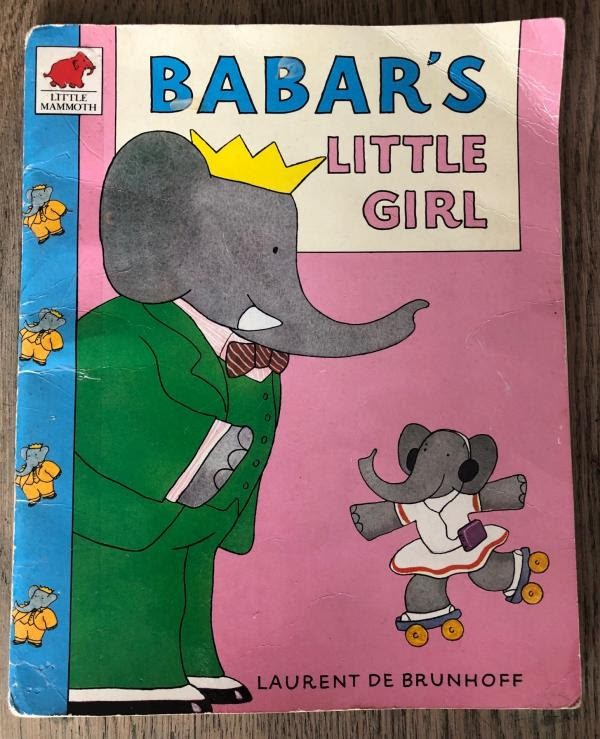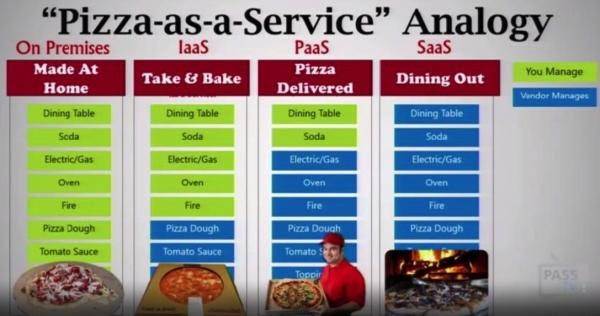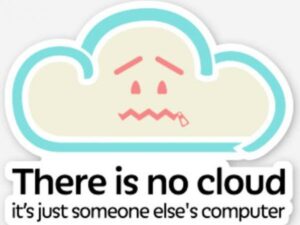How analogies can help people make sense of new things, quickly!
“Bandaid” said Zara (my 22 month old), as she pointed her chubby little finger at the Babar book that was now in two separate pieces on the floor.
Ever since we put her first bandaid on her a few months ago, if she hurts herself, she will point at it, say “sore” and then “bandaid”.
So, when she ripped her Babar book into two by accident, she felt she knew exactly what this book needed. A bandaid!
I went straight away and got the sticky-tape, ripped a piece off and stuck the book back together with it. “There you go….. bandaid” I said afterwards, handing her the book back.

She nodded her head as if to say “I get you mumma!”
This is a great reminder about why analogies are so powerful.
It’s quicker and easier for our brains to make sense of new or complex information by relating it to (and filing it away as) something it’s already made sense of.
Zara made sense of the broken book and the need for sticky tape, by referring to it as something else she already knew.
Obviously I want her to learn the correct word in time, but for now, it’s very helpful to her to know that it’s just like a bandaid.
Now i’m aware of the power analogies hold, my mind automatically *thinks* in analogies. I’m always coming up with new analogies for things I’m thinking about, or trying to explain to others.
Also, I can’t tell you the number of times people have said to me that the most powerful part of a presentation I’ve given is an analogy I’ve used.
Because analogies are *generally* visual (in that they create a mental image in people’s minds), they will remain in people’s memory long after you’ve finished your presentation. Because our minds process things in pictures. It also means they’re easily shared on with others afterwards too.
So, how can you leverage analogies in your work environment?
🔶 WHEN COULD / SHOULD YOU USE AN ANALOGY? 🔶
If you’re trying to explain either of the following, I’d use an analogy as opposed to simply ‘defining it’ or trying to ‘describe it’.
- A new or intangible term / concept / approach
E.g. ‘Policy as code’ or ‘the cloud’ or ‘observability’
- How multiple things differ / compare
E.g. ‘On Prem vs Iaas vs Paas vs Saas‘ or ‘Info vs Basic Story vs Epic Story’
🔶 WHAT TYPES OF ANALOGIES ARE THERE? 🔶
In my mind, there’s three different types of analogies you can use, or come up with.
- Short Analogies – i.e. One sentence / like a quote
- Long Analogies – i.e. A few sentences / story-like
- Picture Analogies – i.e. An image with labels
🔶 WANT TO SEE SOME EXAMPLES? 🔶
Examples of Short Analogies
“Ohh, that cut like a knife”
“That’s as difficult as finding a needle in a haystack”
“That’s just the tip of the iceberg”
Note: These generally have the word “like” or “as” in them, they’re short like a quote and they shouldn’t need to be explained.
Examples of Long Analogies
“The difference between information vs basic stories vs epic stories is like the difference between fast food, a home cooked meal and fine dining. The more time / money you invest, the greater the impact”
Metrics on a Project that aren’t what they seem can be labeled ‘watermelon’ metrics. “They look green on the outside, when they’re actually red on the inside — they’re framed that way to be skipped over, but when you dig in, the problems quickly surface.”
“You need multiple summaries in a talk, so that people can follow you right until the end. You wouldn’t ask someone to follow you through a crowded market for 30mins, through many twists and turns, only to wait until the very end to check whether they’re still with you. So don’t do it to people in a talk! Make sure you summarize what you’ve gone through at various intervals throughout your talk, to ensure they’re still following you right to the end”
Examples of Picture Analogies
Here are some of the most memorable picture analogies I’ve come across, that relate to the Tech world. Obviously these are great if you’re giving a presentation, as they provide a visual representation of what you’re trying to describe.


🔶 HOW DO YOU COME UP WITH GOOD ANALOGIES? 🔶
Some people are complete naturals when it comes to coming up with analogies. If you’re not in that bucket, here are my tips for how you can start to use and leverage analogies in your world.
1. Understand what defines your term / concept first
(i.e. the point you’re trying to get across, its characteristics)
2. Think of what else you know which is “like” that
(It must be something others would easily get. Also it should create a visual picture in people’s minds if possible. Food is a great comparison, but you can use anything that people with any level of understanding would comprehend)
3. Craft the analogy
(This should include the term / concept, what it’s similar to and if required, which aspects are similar)
4. Test it out on someone else
(If it’s an important presentation, check that it’s easy to follow and doesn’t confuse people by testing it out on someone else beforehand)
🔥 Hot Tips 🔥
The Personal Inventory
Instead of making an analogy up, think about what helped you to make sense of this term or concept when you first heard it, or what similarities you’ve already thought of to help with your own understanding. Chances are if it helped you to make sense of it, it should help others make sense of it too.
The 10 year Old Test
If you don’t have one that you’ve thought of for yourself, imagine you’re trying to explain this concept to a 10 year old child. That will force you to come up with something very basic and easy to understand.
So, moving forward, instead of simply trying to define or describe a new concept or term, share an analogy instead. It will be easier for people to understand and it will be much more memorable!
Do you have any great tech related analogies you’ve come across? If so, let me know!
P.S. Analogies are one of the many techniques I teach in my Powerful Presenter Group Program. Next round starts in early 2022. If you’re interested in more details, you can find them here.
Emily Edgeley | PUBLIC SPEAKING COACH | www.emilyedgeley.com


Recent Comments